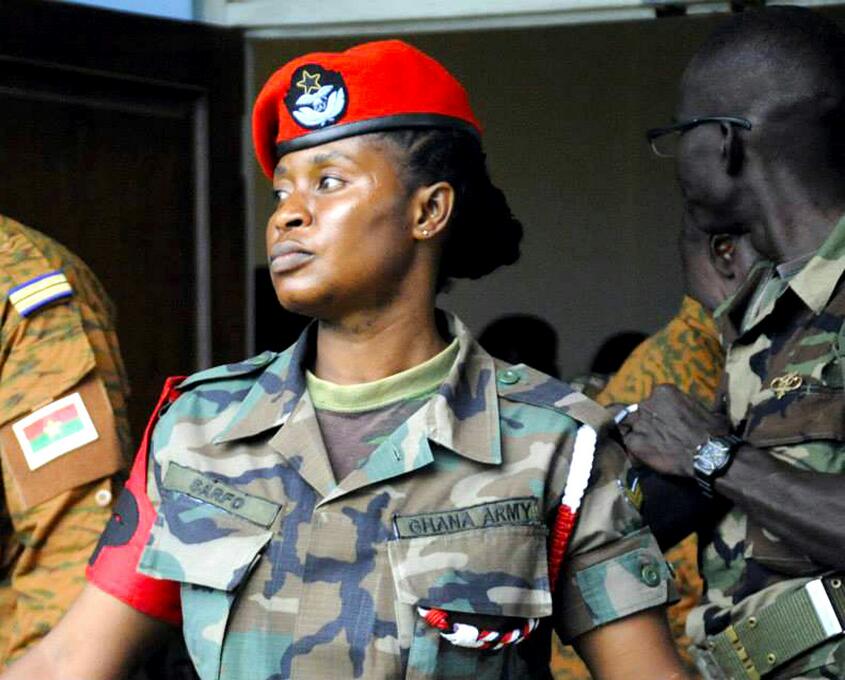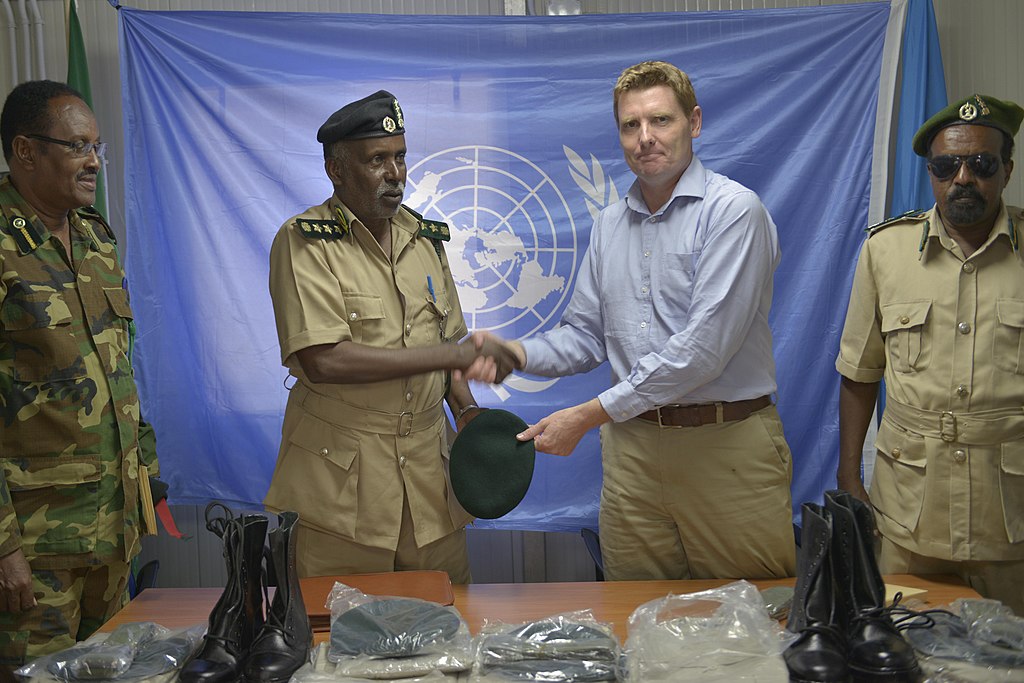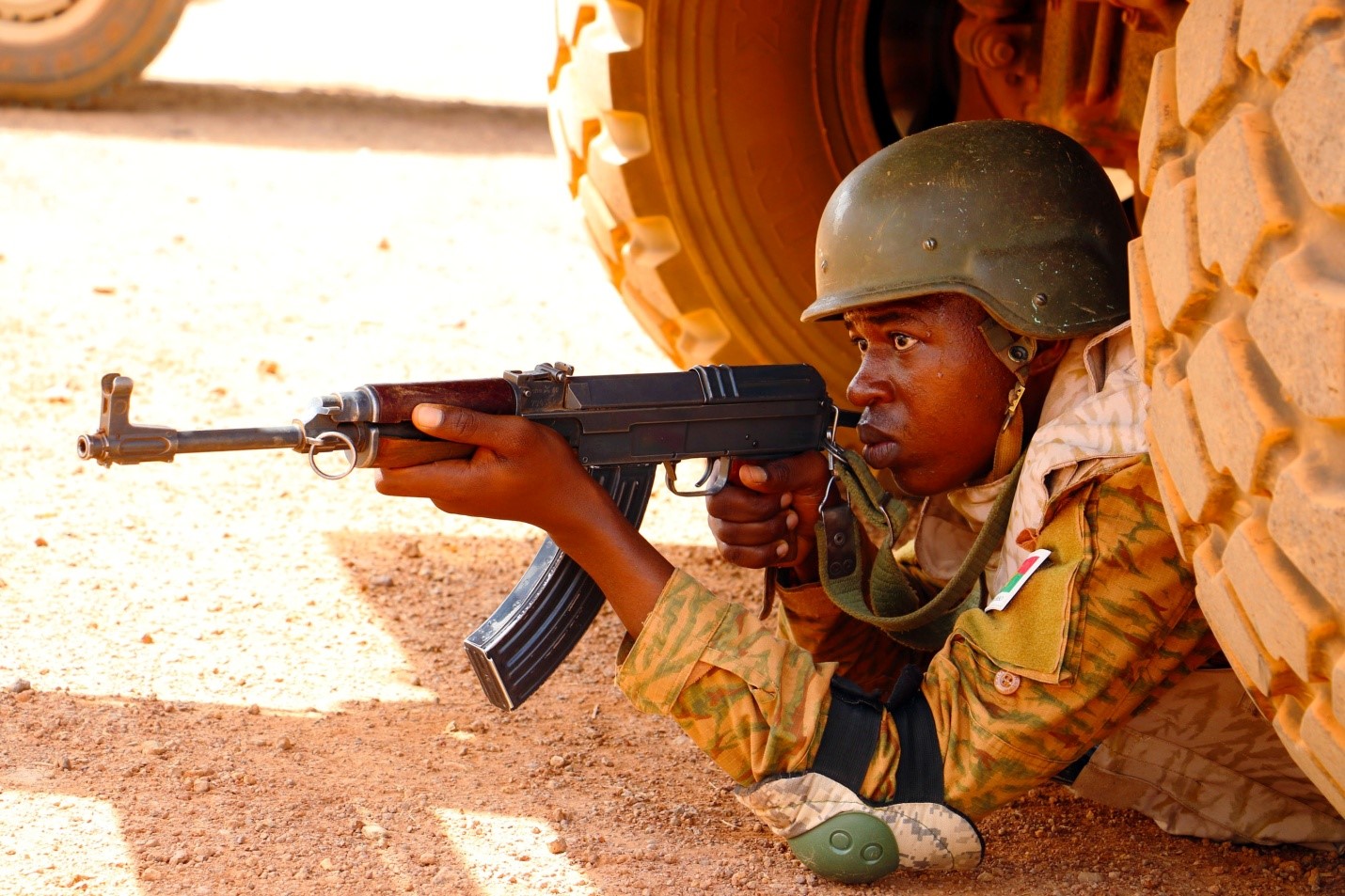
Niger and Burkina Faso, both afflicted with jihadist violence, demonstrate divergent views on negotiating with jihadists from the Islamic State (flag pictured below) and Al-Qaeda
“Niger’s approach [to addressing jihadists threats]… starkly contrasts with the regional trend.”
The countries of the Sahel are undertaking divergent paths when it comes to the question of negotiating with terror groups as the African region cements itself as the new epicenter of global jihadist terrorism.[i] Most countries in the Sahel, and wider West Africa, have shown a reluctance to negotiate with terrorist groups like Al-Qaeda (AQ)[ii] or the Islamic State (IS),[iii] as well as with secular separatist insurgencies. Burkina Faso’s prime minister, Apollinaire Kyelem de Tambela, was emphatic that his country, which has seen one of the most significant spikes of jihadist violence of any in the world, would “never negotiate” with the militants in his country, according to the pan-African news aggregator allafrica.com,. He articulated, “The only negotiations that matter with these armed bandits are those taking place on the battlefield.” Burkina Faso looks to rely heavily on its armed self-defense force, The Volunteers for the Defense of the Homeland, or VDP (Volontaires pour la défense de la patrie). The VDP is an auxiliary unit working alongside the armed forces of Burkina Faso, which has been criticized for providing civilians arms and authority for violence with as little as two weeks of training.[iv] Burkina Faso is also presumed to be receiving some assistance from the Wagner Group to facilitate this kinetic response, which it has officially denied.[v] Niger has taken a different approach, combining negotiations with AQ and IS elements with kinetic counterterror efforts. Niger’s counterterrorism strategy is seen as being much more effective than the zero-tolerance negotiation policy of other Sahelian states, according to a second article from the centrist pan-African think tank The Institute for Security Studies.. Niger’s approach is modeled after the successes of two other regional states, Algeria and Mauritania, to their own insurgencies, and it derived from its own successful history of addressing Tuareg rebellions that plagued the country for years. The military-first approach to counterterrorism in the Sahel has shown its limits over the past decade. The authors of the second article give advise: “Niger’s neighbors in the Sahel and the Gulf of Guinea that are affected by violent extremism should take inspiration from the country’s strategy as they tackle the insecurity afflicting their populations.”
Sources:
“Burkina Faso: Prime Minister Rules Out Any Deal With Jihadists, Boosts Civil Militias,” Allafrica.com (pan-African news aggregator), 31 May 2023. https://allafrica.com/stories/202305310419.html
Burkina Faso’s prime minister on Tuesday ruled out any negotiations with jihadist insurgents that have taken control of swathes of the West African country since 2015.
“We will never negotiate, either over Burkina Faso’s territorial integrity or its sovereignty,” Apollinaire Kyelem de Tambela told parliament, adding that the government aimed to double the number of volunteers for the VDP civil defence militia to 100,000.
“The only negotiations that matter with these armed bandits are those taking place on the battlefield,” de Tambela told the Transitional Legislative Assembly.
Hassane Koné and Fahiraman Rodrigue Koné, “Is Niger’s counter-terrorism approach an exception in the Sahel?” Institute for Security Studies (centrist pan-African think tank), 5 April 2023. https://issafrica.org/iss-today/is-nigers-counter-terrorism-approach-an-exception-in-the-sahel
In early 2022, Nigerien authorities recognised the need for dialogue with jihadist leaders in Tillabéri. This was inspired after several Nigeriens defected from their extremist groups, and violence in the Diffa region decreased after a disarmament and reintegration process launched in 2016….
The use of dialogue in Tillabéri shows strong political will on the part of the government, which is keen to disincentivise engagement with extremist groups, and stabilise the region. Niger’s approach, which combines dialogue and military action, starkly contrasts with the regional trend. Neighbouring countries have reinforced their military tactics through diversifying strategic alliance and employing armed civilians…
By including dialogue in its counter-terrorism efforts, Niger is experimenting with an approach similar to those in Algeria and Mauritania, underpin their decade-long protection against jihadist violence.
Niger’s neighbours in the Sahel and the Gulf of Guinea that are affected by violent extremism should take inspiration from the country’s strategy as they tackle the insecurity afflicting their populations. A coordinated regional approach would also exert pressure on terrorist groups and ultimately deprive them of human resources.
Notes:
[i] For more on the Sahel’s role as the new center of global jihadism, see: Jason Warner, “Global Terrorism Declined Slightly in 2022, With the Sahel as the New Epicenter,” OE Watch, 05-2023, https://fmso.tradoc.army.mil/2023/global-terrorism-declined-slightly-in-2022-with-the-sahel-as-the-new-epicenter/; Jason Warner, “African Leaders, UN See Terrorism in the Sahel as Dire,” OE Watch, 11-2022. https://community.apan.org/wg/tradoc-g2/fmso/m/oe-watch-articles-2-singular-format/429303
[ii] For more on the status of Al-Qaeda in the Sahel and Sahara, see: Jason Warner, “Leader of Al-Qaeda’s Sahelian Branch Explains His Group’s Goals,” OE Watch, 05-2023. https://fmso.tradoc.army.mil/2023/leader-of-al-qaedas-sahelian-branch-explains-his-groups-goals/; Jason Warner, “Al-Qaeda Leader in Maghreb Celebrates French Departure, Claims No Plans To Attack French Homeland,” OE Watch, 04-2023. https://fmso.tradoc.army.mil/2023/al-qaeda-leader-in-maghreb-celebrates-french-departure-claims-no-plans-to-attack-french-homeland/
[iii] For more on the status of the Islamic State in Africa, see: Jason Warner, “”UN Warns About Islamic State Surging in Africa and Afghanistan,” OE Watch, 03-2023. https://fmso.tradoc.army.mil/2023/un-warns-about-islamic-state-surging-in-africa-and-afghanistan/
[iv] For more on the VDP and critiques of it, see: Jason Warner, “Burkina Faso Fights Terrorism With Recruits and Russia,” OE Watch, 02-2023. https://community.apan.org/wg/tradoc-g2/fmso/m/oe-watch-articles-2-singular-format/436264
[v] For more on Burkina Faso’s relationship with Wagner and Russia, see: Jason Warner, “Russia-Supported Military Rulers in Mali, Burkina, and Guinea Continue To Deepen Ties,” OE Watch, 04-2023. https://fmso.tradoc.army.mil/2023/russia-supported-military-rulers-in-mali-burkina-faso-and-guinea-continue-to-deepen-ties/; Jason Warner, “Burkina Faso Fights Terrorism With Recruits and Russia,” OE Watch, 02-2023. https://community.apan.org/wg/tradoc-g2/fmso/m/oe-watch-articles-2-singular-format/436264
Image Information:
Image: Niger and Burkina Faso, both afflicted with jihadist violence, demonstrate divergent views on negotiating with jihadists from the Islamic State (flag pictured below) and Al-Qaeda
Source: https://www.flickr.com/photos/121483302@N02/14690988398
Attribution: CC BY-SA 2.0



